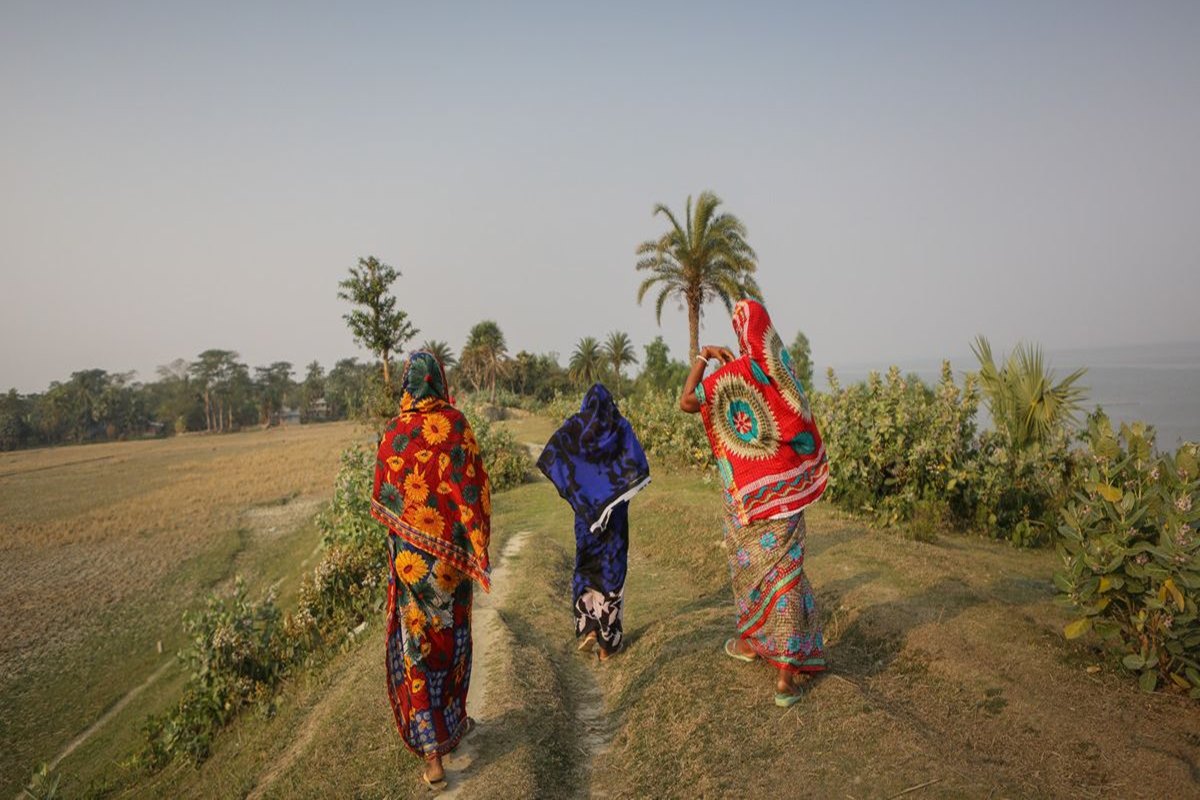Traditional wisdom, modern challenges
In a cluster of villages inhabited by Tharu tribals in the terai area of Uttarakhand, a nutrition survey discovered that despite other problems, people had managed to avoid malnutrition to a remarkable extent.
Explore the urgent call for gender-inclusive climate policies as activists push for action ahead of COP28 in Dubai. Learn how women, particularly in developing regions like India, bear disproportionate impacts and why COP28’s decisions matter in addressing these critical concerns.

The forthcoming U.N.-led climate summit, known as COP, is gearing up for its annual assembly in Dubai later this month. Activists, rallying for attention on climate change’s disproportionate impact on women and girls, are urging policymakers ahead of COP28 to take meaningful steps, particularly in regions where poverty heightens vulnerability.
The call for action spans various recommendations, including securing land rights for women, fostering women’s cooperatives, and championing women in leading roles for climate policy development. Notably, there’s a push for countries, particularly developing ones like India, to allocate more funds in their budgets to ensure gender equity in climate policies.
Advertisement
Acknowledging the urgency of the matter, the Group of 20 leaders, who convened in New Delhi this past September, underscored the need to integrate gender equality into climate action. Their declaration emphasized accelerating climate initiatives with a core focus on gender equality. This entails increasing the participation and leadership of women in both mitigation and adaptation efforts.
Advertisement
Asha Singh, a women’s health expert, highlighted the often-overlooked plight of women in rural, climate-affected communities. These women find themselves at the forefront of physically demanding agricultural work, further intensified by challenges linked to climate change, such as unpredictable weather patterns and increased labor demands.
Singh drew attention to the fact that although climate change doesn’t directly cause issues like uterine prolapse, it exacerbates underlying health challenges, making women more susceptible to such problems. In India, a significant gender dynamic unfolds in agriculture, where women assume primary roles while men migrate to urban areas.
A government labor force survey for 2021-22 revealed that a staggering 75% of those working in agriculture are women. However, the ownership of agricultural land by women is alarmingly low, accounting for only about 14%, according to a government agriculture census.
The narrative becomes even more concerning as it unveils a picture of women sacrificing their well-being. These women toil for long hours in intense heat, exposed to harmful substances like insecticides and pesticides. Their access to clean water is uncertain, and they often endure undernourishment due to societal structures that place them at the bottom of the food hierarchy within patriarchal systems. Against this backdrop, the upcoming COP28 meeting in Dubai assumes significant importance for activists.
Asha Singh emphasized the necessity for COP28 to move beyond the conventional provision of financial aid. Instead, there’s a call for active promotion and facilitation of the inclusion of gender considerations within all climate-related policies, initiatives, and actions. The plea is for concrete actions that go beyond rhetoric, addressing the unique challenges faced by women in the wake of climate change. The summit, therefore, stands at a crossroads where decisions made can either perpetuate the existing vulnerabilities or pave the way for a more inclusive and equitable approach to climate policies.
Advertisement